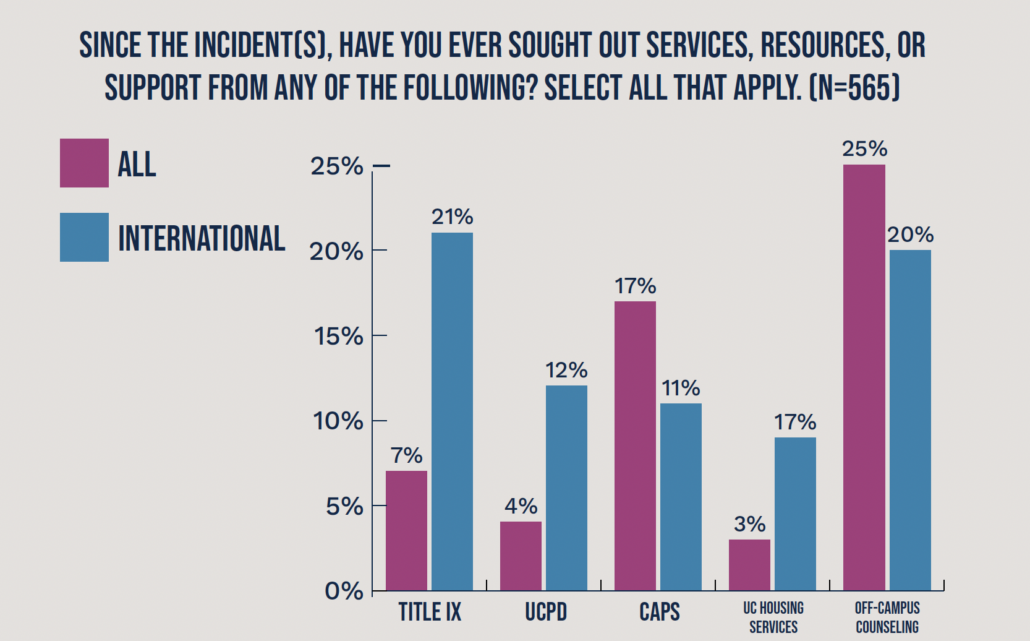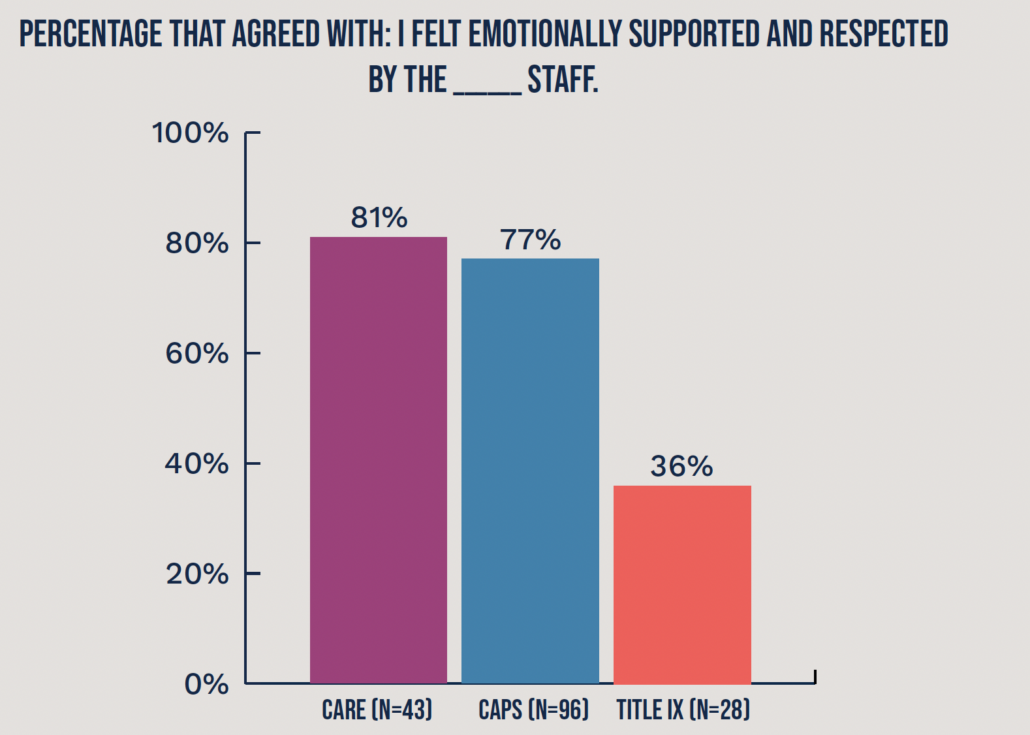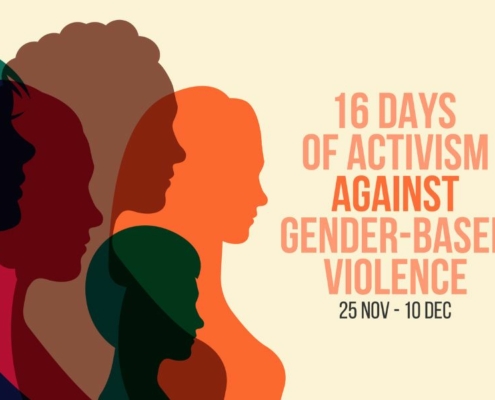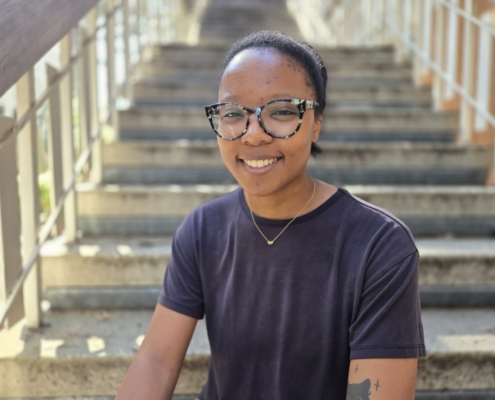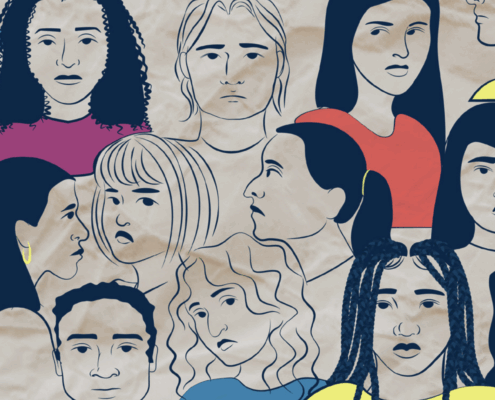From Surviving to Healing: Results and Demands from a Study with Survivors of Sexual Violence on University of California Campuses
Survivors + Allies is a student organization that advocates for, and with, survivors of sexual violence across the UC campuses. The report “From Surviving to Healing: Results and Demands from a Study with Survivors of Sexual Violence on University of California Campuses” was born out of a collective frustration at the UC system’s reticence to make basic changes that would better support student survivors.
“From Surviving to Healing” Report
Their study findings empirically demonstrate what many survivors already know: resources at the UCs for survivors of sexual violence are inadequate, underfunded, and focused on punishing perpetrators while neglecting to provide adequate healing options for survivors. Marginalized students, including international, students of color, and LGBTQIA+ students, are left behind. Mental health resources are undermined in favor of investigative processes. Confidential resources for survivors (i.e., UC employees who would not trigger a Title IX case if the survivor shared their experience) are essentially nonexistent, and student awareness of confidentiality is abysmal. In short, the UCs are not safe places for survivors of sexual violence, which by some estimates account for 20-25% of undergraduate women.
Report Reader
Report Launch Webinar
February 2024
Report Highlights
CONTENT WARNING: Please note that the Findings sections include quotations from survivors in blue boxes, and these quotes could be potentially triggering to read. If you need support at any time you can go to our Resources page or call RAINN’s 24/7 confidential support hotline at 1-800-656-4673.
Graph Highlights
FAQs From Webinar Attendees
What demographic categories did you include in the survey? (Is there any data on differently abled or undocumented students)?
We asked students (non required) questions about: gender, sexuality, racial/ethnic background, role at the UC, UC attended, international student status, religious background, and comfort speaking English. We did not ask about disability or documentation status.
This work is really needed and I am really grateful for your team! I am wondering if there are ways to get involved with your research team as a current student?
Absolutely, please email us at uclasurvivorsandallies@gmail.com or reach out to us on Instagram!
Did you gather information on what percentage of students experience SV on each campus?
No, this was not a prevalence study of SV on UC campuses. Our research questions were not about the frequency with which SV happens, but rather about (1) student’s awareness of resources for survivors, (2) survivors’ utilization of resources, and (3) survivors’ evaluation of those resources.
Do you have a breakdown on survey respondents based on UC location?
We do, although we did not conduct analysis by each UC because for some schools the sample size was too small. In addition, we’re trying to advance a mindset shift at the UCs as a whole rather than advocating for change at any individual UC. The problems we identified with resources and awareness for SV at the UCs are widespread across every institution.
Since staff and faculty are typically not required to attend any trainings or information sessions provided by CARE where we can find explanations on what services they provide and what the process is to refer students/staff/faculty?
Each UC has a CARE office (at Berkeley it is called “Path to CARE”) and a website, and you can learn more about the services they offer and refer survivors through their website. We would recommend reaching out to a CARE staff member to ask more detailed questions about services at your UC, because funding for CARE and the types of services they offer differ based on the campus.
I’m interested to know if you have suggestions or models for implementing this recommendation: Students of color need more specialized spaces at the UCs for information on off-campus resources and healing activities where they can feel safe.
Yes! We have several recommendations, and these can be applied to all the underserved student groups we identified in the survey who particularly need additional information and support (including students of color, LGBTQIA+ students, and international students): (1) SV trainings and Title IX websites at each UC should highlight local off-campus resources designed for survivors of color; (2) Title IX offices should conduct specialized outreach to centers for students of color, like the Chicanx/Latinx Cultural Resource Center at UCSB, to ensure they are aware of on- and off-campus resources including CARE; (3) CARE should receive funding to collaborate with these centers as well as student organizations to design healing resources alongside survivors of color; and (4) centers for students of color that have UC staff should have a designed confidential staff member who is not required to report an incident of SV to Title IX (which would prompt an investigation), and instead can advise the student on their options which includes Title IX but also confidential resources like CARE, CAPS, and other resources that may be appropriate to the survivors’ needs. For example, UCSB and UCDavis already have this model at their LGBT Centers.
Do you know of any universities that do meet the needs brought up in your presentation? Any examples of universities that prioritize healing and trauma-informed care?
We can’t name a particular university that is doing a notable job. One of the reasons we want the UCs to listen to us is because it can become a flagship example or model of supporting survivors. The UCs are leaders in higher education, so we want to call on them to become trauma-informed and healing-centered in their approach.

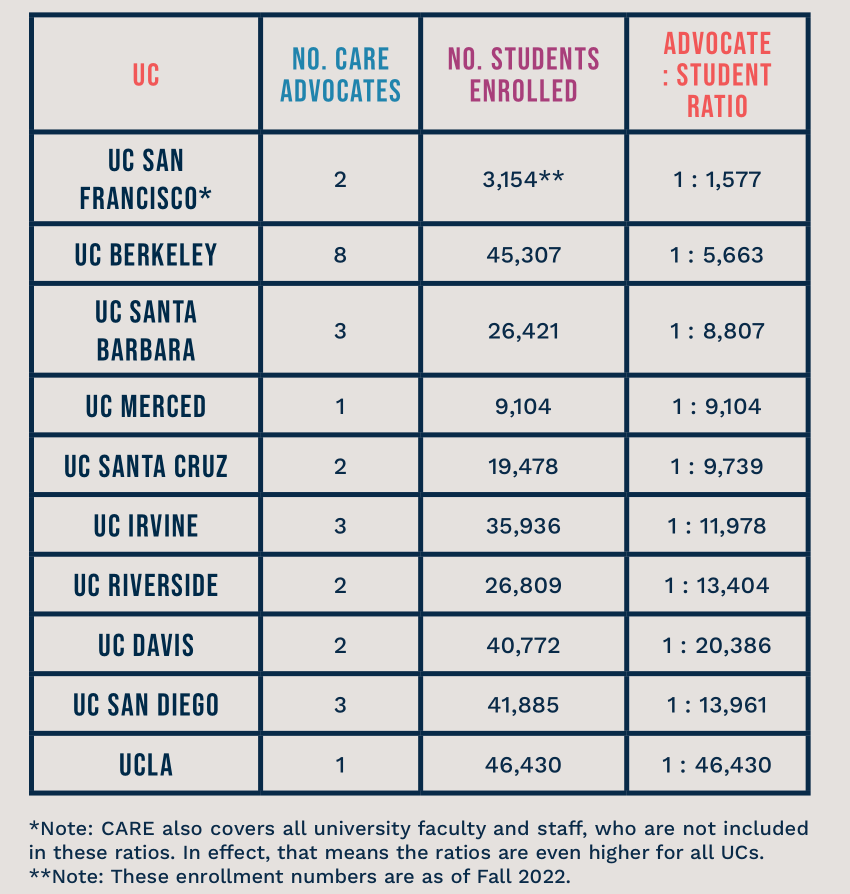
![Oncampus Resources Graph PRIOR TO TAKING THIS SURVEY, HAD YOU HEARD OF ANY OF THESE ON-CAMPUS RESOURCES FOR VICTIM-SURVIVORS OF SEXUAL ASSAULT AND/OR VIOLENCE [SELECT ALL THAT APPLY]?](https://csw.ucla.edu/wp-content/uploads/2024/01/Oncampus-Resources-Graph-1030x751.png)
